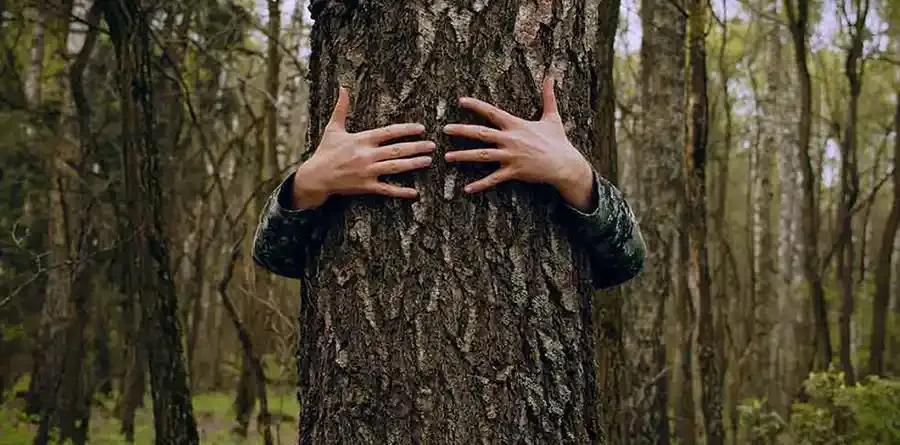Hyundai Motorstudio Senayan Park
Hyundai Motorstudio Senayan Park
Newsroom
The official news from Hyundai Motorstudio Senayan Park and a collection of innovative articles on mobility and sustainability here.
-
9 Examples of Our Environmental Responsibility to Preserve the Nature
- Hyundai Motorstudio Senayan Park Senayan Park 2022.06.03
-
It is the responsibility of every human being to ensure that nature is preserved. Caring for the environment is not an option, but a necessity for anyone.Humans are part of the ecosystem who have a crucial role in protecting nature. The simplest act for protecting nature is by removing waste, reducing waste, and using environmentally friendly products.Conserving nature is one of the big unfinished issues, along with climate change. Both individuals and corporations, all must contribute in protecting nature according to their capacities.
Why is Preserving Nature Important?
Protecting nature is an obligation for each individual. This social responsibility is aimed to balance the economic needs with the availability of natural resources.To keep the environment healthy, this process can be started from the closest environment, such as the surrounding household. An example of its application, use environmentally friendly products.Being friendly to the environment requires a high commitment because every step must not harm the nature and prevent ecosystem destruction. It doesn't just turn off the lights when not in use, it does more than that.Preserving nature is a way of life that focuses on being environmentally friendly, for instance by keeping the soil, water and air ecosystems free from pollution.This step can be started by understanding what is good and bad for the ecosystem, then contributing to lowering the carbon footprint, and inviting others to change lifestyles to be more environmentally friendly.What Is Our Environmental Responsibility?
In relation to preserve nature and save the earth, we have a duty to act immediately. Depending on the capacity we have, our tasks are certainly different even have the same goal, to protect the environment.1. Apply 3R
The 3R principle contributes positively to reduce waste while acting as a control system for each commercial product. Reuse, reuse, and reduce any type of product will lessen the volume of waste.
Some unused objects can be repurposed, and this is better than throwing them away. Items such as cans, foam, paper, and others, can be created into other products that are equally useful.2. Take Care of Energy Sources
As simple as turning off electricity when not in use, patching leaks, maximizing natural light, and buying renewable energy devices can lower energy consumption. Likewise, using friendly septic tanks, used water for watering plants, and adding infiltration wells are great for maintaining the water ecosystem.3. Reforestation
The simplest approach is not to cut down the trees, but it would be much better to plant another tree. Reforestation also means growing vegetables, fruit, regulating erosion, and preventing destruction. It's not only great for conservation, it's more than that.Trees provide oxygen, which is a basic human need, while vegetables and fruit provide nutrients, and preventing erosion means keeping the tree growing. Our social responsibility is to invite more individuals or groups to plant more trees.4. Caring For Local Water Sources
Never think that the local water source is in a nearby mountain, instead under the house which is used through wells. So, hazardous waste such as paint, ammonia substance, and products with chemical substance should not be buried because it will be absorbed. If the water is contaminated, the health will be at stake.5. Walk A Lot
That means, reduce the frequency of driving. The most ideal tip to be more friendly to the environment is to use public transportation when going anywhere. If the office is not too far, try switching to a bicycle.In addition to save money, it’s healthier. Furthermore, the work area should be designed to minimize energy consumption to reduce the carbon footprint.6. Buy Efficient Products
Energy-saving products are able to reduce energy consumption and are more environmentally friendly. One small example, CFL-based lamps consume 40% less energy and offer 10 times longer lifespan than common lamps.7. Buy Local Products
It's a bit difficult to implement this, but it's not impossible. By buying local, we are already contributing to reduce the carbon footprint. Don’t travel far just to buy vegetables because there is energy that can be saved. Also, avoid using new plastic every time you shop.8. Buy Eco-Friendly Products
In fact, not all products are environmentally friendly. So next time you buy, check if there is a recycle label which is usually marked with a green, triangular arrow. Doing this means you are already applying the 3R principles and environmentally friendly behavior. Just don't forget to bring your bags to reduce plastic.9. Avoid Thrashing
Waste can be generated from the production and destruction processes, either from individuals or corporations. Trash has bad consequences for the environment, especially the surrounding area. It has a bad influence on the atmosphere, natural resources, and the wider ecosystem.So, it is our responsibility as the earth ecosystem to preserve nature. Again, what is our environmental responsibility? Start by saving energy, minimizing waste and keeping the environment healthy.




